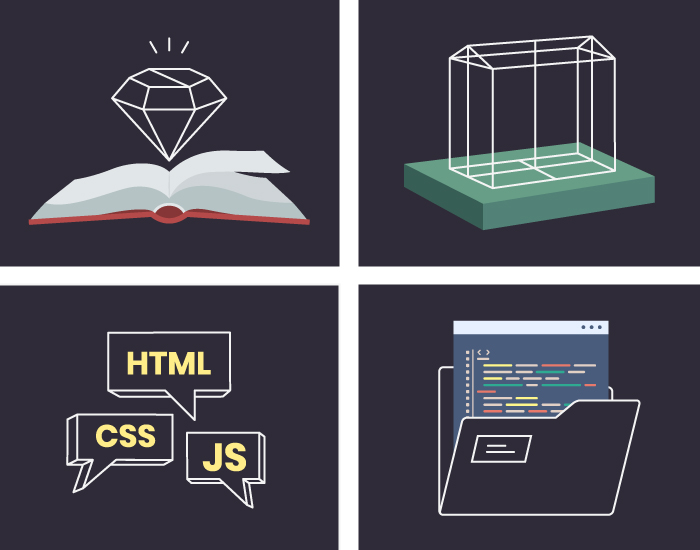Ruby is one of the most popular programming languages in the world—in part because it’s consistently rated as one of the easiest languages to learn for new programmers. A large part of Ruby’s appeal is that it is built to make programming enjoyable for the programmer: It’s elegant, economical, and incredibly well-supported.
But it’s also extremely powerful and versatile, which has helped it to stand out in the realm of web development. Ruby is the language of choice for many businesses on the web, from small startups to giants like Hulu and Airbnb.
In terms of career prospects, Ruby is a good bet. Developers are earning, on average, over 70K per year in the US, and well over six figures in the coveted senior dev roles at the top end of the pay scale.
But what, exactly, does a Ruby developer do? And what do you have to know to become one—or to go beyond entry level roles and make it all the way to senior developer? That’s what we’ll tell you in this article.

First things
Let’s start with the obvious. If you’re going to be a Ruby developer, you’re going to have to learn Ruby—and learn it well. If you’re looking to learn Ruby programming and you have zero prior programming experience, one of the best resources around is Zed Sh aw’s Learn Ruby the Hard Way. It’s available online for free, and is supported by a lively web forum of people currently taking the course. One word of warning: the name of the book is no joke. Shaw’s teaching method is to give exercises and assignments that force you to figure out exactly why and how Ruby does what it does—and also why it’s not working when something goes wrong. Yes, this can be frustrating, and is probably not the best method for everyone (especially if you don’t like self-study). But if you stick with it, you’ll be rewarded with a deep understanding of Ruby and of programming in general. You’ll also learn the most valuable of all programming skills: figuring out the answer on your own. Another course that offers an entire Ruby learning track—with a bit more help and support than Shaw’s, is found at the online coding school Team Treehouse. Treehouse’s subscriptions start at a fairly reasonable $25 a month. This track covers all the basics of the Ruby language and also contains a number of projects where you’ll build actual apps using Ruby—which can be great portfolio builders if you’re looking to break into programming or change careers.
